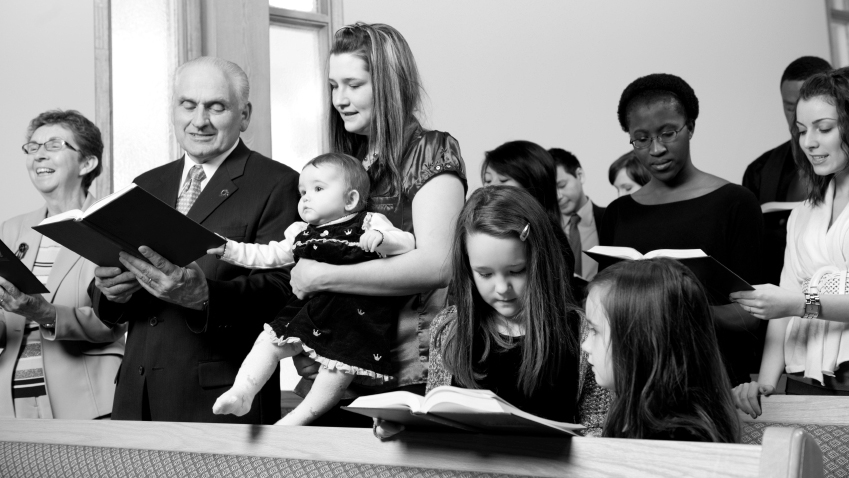I was a typical big sister growing up. The oldest of three, I saw myself as the guardian of tradition, the planner in an otherwise spontaneous family. Every Christmas Eve, if Dad forgot, I would round up the troops, lead the march to the carpet in front of the fireplace, and hand over the volume of O. Henry short stories that usually sat high up on the bookshelf.
In his soft voice, Dad would start reading The Gift of the Magi, reprising our family's Christmas tradition. It tells the story of James and Della Dillingham Young, whose poverty complicated the act of buying Christmas gifts for one another. Each sold their single prized possession in order to buy a gift for the other—Della her long hair, Jim his gold watch. Our family sat rapt for the 20 minutes it took to get to the conclusion—to Della's combs, Jim's watch chain, her short hair, his watch sold. "Of all who give and receive gifts, such as they are the wisest."
There is power in a good story. And with that in mind, a few months ago I began to write my own story of growing up in an evangelical home. Unlike the tales of Christian kids that attract the most attention in blog posts and books these days, mine has a happy ending.
I grew up square in the middle of 1990s American evangelicalism, and I'm grateful and better for it. Sure, there were exceptions—a few moments that in retrospect make me cringe—but overall, it was a rich and challenging experience. I read books like Mere Christianity and The Pilgrim's Progress; talked about gender issues, racism, and social justice; and developed a remarkable group of friends who were committed to figuring out how best to live out the Christian faith.
The more I wrote about who I met and what I learned, I found that I was numbered among many who grew up evangelical without trauma or harm, with a full window into the world and no qualms whatsoever about the role of women in the church or at home.
Yet even we evangelicals now talk about brothers and sisters and our own stories with an eye roll or quick dismissal. We have come to believe that the experiences of exclusion and infighting that dominate the American religious landscape are the norm, rather than the exception, in our faith.
Evangelicals have long been painted with a broad brush: moralistic, right-wing, uneducated, and unable to appreciate the earth or beauty, fearful and not a little bit strange. That picture is not accurate or full; I don't know many people or movements that would stand up to it, even with their worst characteristics laid bare. Seeing past stereotypes takes work, but it is work that is worth doing.
This is why there is power in a good story, one that's not only well told but also promises redemption for us foolish people. We Christians often repeat the same sad stories as the broader culture around us. We trumpet our brokenness and silence our joy, we analyze and lament, but we don't celebrate our shared faith often enough. We look for the bad rather than the good, and we wonder why our souls have been ground to pieces.
Growing up, I learned the importance of the life of the mind (thanks to my parents and Christian historian Mark Noll) and the power of vulnerability (thanks to the aforementioned group of friends). I discovered how to identify and use my gifts in the kingdom of God, and how to talk about my faith with folks who didn't share it—a hallmark of evangelicalism that's often gotten a bad rap. "I don't want to force my faith down their throats" has become a too-common refrain among Christians. I have seen the gospel shared poorly and in damaging ways, to be sure. But far more often, I have seen people who love Jesus paint a stirring and winsome picture of the Way, the Truth, and the Life.
After all, that's what our movement is about. I have heard it said that the best litmus test for a person's take on evangelicalism is what she thinks about Billy Graham. The test may not resonate with all my peers, but the question remains central: Do we believe that the gospel should be shared? Do we believe that the gospel is good news—a good story—for all people? Or have we grown tired and cynical, pressed down by the headlines and talking heads?
Young Christians find themselves in grave danger of going the way of John Bunyan's Worldly-wiseman because we are drowning in what evangelicals are against, rather than what rallies us: Jesus Christ. He is the best news, the ultimate good story.
In The Gift of the Magi, Della and Jim sacrificed their best to bring joy to each other. Their actions highlighted a generous love, and that love undergirds their story. May it undergird ours as well.
Laura Turner is a writer in California and a contributor to Her.meneutics. She blogs at loturner.com.










